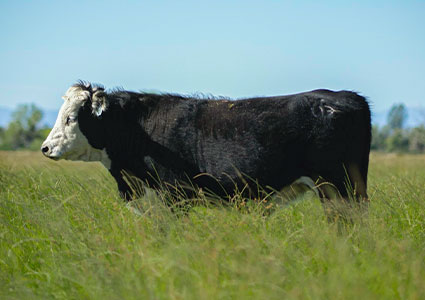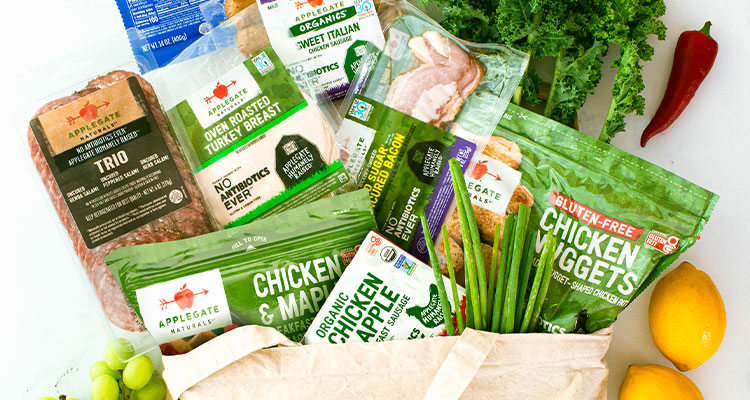How Applegate Farms’ mission supports a healthier food system
In the US, around 70 percent of antibiotics go to animals, not people, which can lead to the creation of antibiotic-resistant bacteria in their stomachs. For over 30 years, Applegate Farms (Applegate) has made it its mission to produce high-quality natural and organic meat products from animals raised humanely, without antibiotics or growth hormones. This practice goes hand-in-hand with the organization’s other core objectives, which include making tasty food that does not contain artificial additives such as nitrates and flavorings, limiting the use of allergens, and ensuring the food is natural and organic. While the meat industry is known for its negative effects on the environment, Applegate proves that meat from animals raised with care can actually promote environmental sustainability. Indeed, as it was founded by a conflicted vegetarian who would only eat meat if the animals had not been poorly treated, the company makes its products from livestock that was handled with care and respect and fed a vegetarian or 100 percent grass diet. Joe O’Connor, President of Applegate, details how this honorable mission originally came to be.
 “Since its inception in 1987, the company has been focused on changing the food system in the US for its consumers. Fast forward 37 years and Applegate is now the number one natural and organic meat brand in the country,” he opens. “Our reputation and current position in the market are the result of a series of decisions, beginning with the removal of ingredients like nitrates from our production. Later, we eliminated antibiotics from our livestock’s diet, expanded our foothold in organic meats, and most recently, we committed to regenerative agriculture.
“Since its inception in 1987, the company has been focused on changing the food system in the US for its consumers. Fast forward 37 years and Applegate is now the number one natural and organic meat brand in the country,” he opens. “Our reputation and current position in the market are the result of a series of decisions, beginning with the removal of ingredients like nitrates from our production. Later, we eliminated antibiotics from our livestock’s diet, expanded our foothold in organic meats, and most recently, we committed to regenerative agriculture.
“What makes us so unique is that we are a mission-based company, with our vocation driving a large part of our culture. In line with this mission, our focus is on fostering a healthy population, planet, and animals, all of which are raised with the highest human standards, giving them the best possible life. Essentially, we treat them with the utmost respect, as do all of our farming partners and suppliers,” he continues.
Innovative products
Throughout its history, Applegate has consistently grown its product portfolio, resulting in wider popularity and awareness of its brand and mission. Joe tells us more about the company’s current offerings. “When Steve McDonald, our Co-founder, started the business, his vision was to create a clean hot dog. He couldn’t grasp why there weren’t cleaner options available in the market and why hot dogs had to be these nitrate-filled meat sticks, so to speak. Thus, our first product line consisted of clean, natural hot dogs, and we later expanded into deli or lunch meats. The movement against antibiotics in livestock began a few years later, in the early 1990s, marking our first foray into raising animals without any antibiotics.
“Today, our products span 14 categories, with a couple more coming soon that we are very excited about. These categories range from hot dogs and bacon to breakfast sausages, breaded chicken and deli meats. Many of our items have become staples throughout the US, namely our gluten-free range, as an important portion of our consumer base is highly focused on avoiding allergens. We go to great lengths to offer a selection of products free from the top nine allergens, and 70 percent of our portfolio is gluten-free. As a result, we have established ourselves as a trusted brand for consumers concerned about allergies. The framework we follow when creating new products is very thorough as we strive to address specific consumer needs. This includes considerations around whether the product is natural, organic, made through regenerative farming, or contains any allergens. No matter the target audience, we do not use any genetically modified ingredients in any of our products,” he enlightens.
With that, Joe elaborates on the in-house recipe development process allowing for the introduction of Applegate’s most innovative products. “Blessed with our own R&D team, we also work with a brilliant network of dietitians and nutritionists who help us develop new items. This process involves a lot of trial and error, especially considering the restrictions imposed by our list of over 700 ingredients that we will never use. Many of our products are inspired by trends within the food service industry, as we strive to stay ahead of evolving customer requirements. Nonetheless, we also invent new products by simply looking at our existing categories and working on offering cleaner alternatives. Having a long list of banned ingredients can make it challenging to develop some of these items, but we are committed to taking the necessary time and following our process to ensure that we produce high-quality products.”
Regenerative agriculture
Alongside the delivery of such groundbreaking products, Applegate specializes in promoting regenerative farming and agriculture. For those unfamiliar with it, Carolyn Gahn, Senior Director, Mission and Advocacy, shares her expert knowledge and perspective on the subject. “As a meat company, we believe that animals can have a positive impact on the planet and the health of the land. To us, regenerative agriculture is the practice of leveraging animals’ natural behaviors to enhance land and soil health, biodiversity, and water quality. We believe that this ultimately leads to healthier animals, and as a result, a healthier and more nutritious product for people to consume. Notably, we are on track to achieve our ambitious goal of transitioning all of our beef supply for our hot dogs to certified regenerative farms by the end of 2025. This is a particularly exciting endeavor for us, as many of our farmers have shared stories about how regenerative farming has improved their business and the longevity of their farms. From a long-term sustainability and environmental standpoint, we believe that regenerative agriculture is the way that we, as a mission-driven brand, should be moving in order to pull the rest of the industry towards the same gold standard,” she informs.
Giving credit where it is due, Joe affirms that Applegate does not undertake regenerative agriculture itself. Instead, it is implemented by the vast network of farmers with which it works. “Across the various animal species we source, we have a network of over 4000 farmers, all of whom are third-party audited and certified. Our systems provide traceability to guarantee the source of our products and to maintain our rigorous standards. For example, we added video monitoring to some of our processes to ensure that we are following through on our commitments. Additionally, there is a small team within Applegate that conducts audits of the audits, thereby further assuring compliance. Through this, Carolyn and the rest of our team get to know the farmers and farming families very well, which is a rewarding aspect of our business,” he expresses.
with which it works. “Across the various animal species we source, we have a network of over 4000 farmers, all of whom are third-party audited and certified. Our systems provide traceability to guarantee the source of our products and to maintain our rigorous standards. For example, we added video monitoring to some of our processes to ensure that we are following through on our commitments. Additionally, there is a small team within Applegate that conducts audits of the audits, thereby further assuring compliance. Through this, Carolyn and the rest of our team get to know the farmers and farming families very well, which is a rewarding aspect of our business,” he expresses.
Safeguarding farmland
Applegate’s commitment to working alongside farmers is also displayed through its partnership with the American Farmland Trust. “Launched earlier this year, this partnership is focused on promoting sustainable farming practices that protect farmland and support farmers,” says Carolyn. “Both of our organizations are aligned in our desire to advocate for regenerative agricultural practices that support farmers and keep them on their land. The American Farmland Trust, which was founded in 1980, has permanently protected over 7.8 million acres of land in the US from commercial development. It embraces a holistic approach to supporting farmers by safeguarding the farmland itself. Our partnership comprises a grant program known as the Brighter Future Fund, which aims to help farmers and ranchers improve their business viability by supporting their access to land, protecting their existing land from development, and then adopting regenerative agriculture practices.
“The Brighter Future Fund’s focus is on helping historically underserved farmers, such as first-generation farmers and smaller scale or diverse farms that have traditionally experienced major barriers to business. Therefore, the Brighter Future Fund provides the funds to cover some expenses that may occur, like fencing, water lines, compost or delivery trucks. Amounting to $5000 for each farm, which may sound small, these grants can actually make or break a farm when it’s just starting up. While the farms supported by the Brighter Future Fund do not necessarily feed into our supply chain, we are looking to the future with the idea that we are supporting our next generation of suppliers. Advancing regenerative agriculture is a long game, and we have to invest now in the farmers we want to work with in the future,” she ends.
